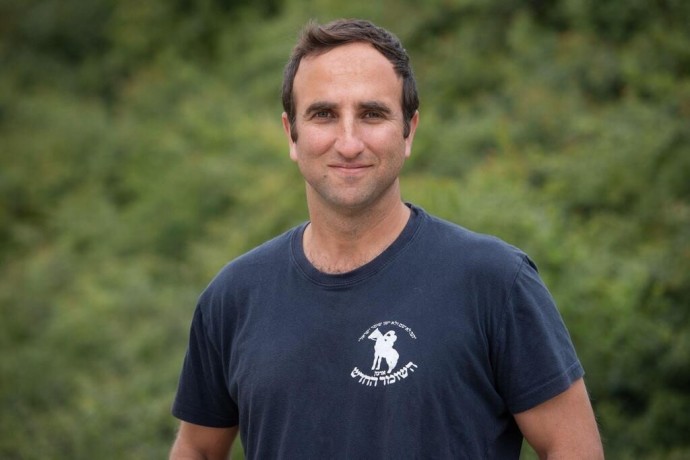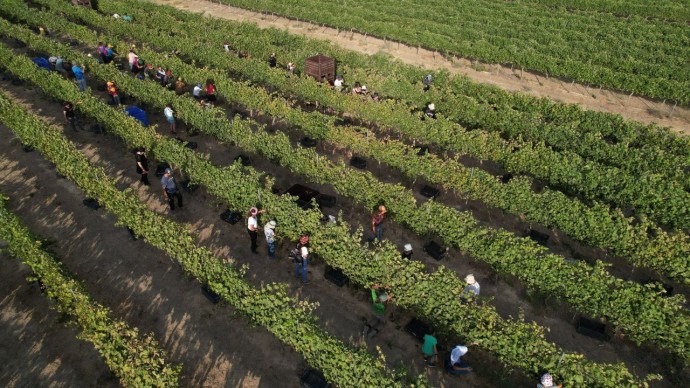The days of conflict in Israel pose a significant challenge to Israeli agriculture, threatening long-term harm to Israel's food sovereignty. Many farmers have been left without workers as numerous foreign workers left Israel with the outbreak of hostilities. Like other sectors of the economy, agricultural production has declined, leading to an overall economic slowdown. Consequently, farming businesses are facing cash flow difficulties, endangering their continued operations and raising fears of widespread closures. Regrettably, several farmers we spoke with reported significant delays in receiving compensation from the state, along with very challenging bureaucracy. The compensation mechanism is not user-friendly, with time-sensitive decisions potentially making the difference between saving a business and its closure. As observed throughout the conflict, civil society organizations are stepping in where the government has fallen short, providing aid to farmers.
A special survey recently conducted by HaShomer HaChadash among farmers examined the damages of the conflict on agriculture and its future impact on food security. The survey revealed that 90% of Israeli farmers report damages to their farms due to the conflict. 35% of the farms in the Gaza envelope have completely ceased operations, and 84% of Israeli farmers believe there is an impact on Israeli nutritional security, with over 50% saying that nutritional security has been greatly compromised. Additionally, 90% of farmers in the border area reported a severe shortage of labor. "These days of conflict underscore the need to maintain Israel's food independence in order to rely on local produce components without dependency on imported food. We've decided to build a comprehensive assistance package for Israeli farmers to preserve and strengthen Israeli agriculture," says Yoel Zilberman, CEO and founder of HaShomer HaChadash.

Numerous organizations began, already in the early days of the conflict, to provide volunteers to aid agricultural farms in order to bolster them with working hands. Hundreds of thousands of Israelis did not remain indifferent and went to volunteer and provide voluntary assistance. HaShomer HaChadash, an organization that usually focuses on protecting agricultural lands, established a special operations room for volunteer recruitment in agriculture at the beginning of the conflict. This operations room continues to function, having mobilized over 250,000 volunteers to date who are scattered daily across Israel, providing help to farmers. These volunteers come from diverse social backgrounds, of various ages, including Israelis, new immigrants, and tourists. "These are challenging times to continue with the routine operations because of fewer visitors and a significant decline in sales, but we are here to carry on the Zionist and ethical activity of working the land to practice Hebrew agriculture," says Gal Tushiya, a farmer from Be'er Milka from southern Israel who grows grapes, dates, and pomegranates, and adds, "We are here to connect the people of Israel to their land, and thanks to organizations that have mobilized volunteers, we manage to keep the business alive. It's a business that is a way of life, and the volunteers do holy work. HaShomer HaChadash helped me even before the conflict by recruiting investors through the 'Eretz Noshevet' (Cultivated Land) project, which helped me expand my vineyard areas at the farm and effectively enabled the economic development of the place.”
Avichai Lev Ran, a farmer from Moshav Avnei Eitan who grows raspberries, recounts: "The situation these days is complicated; we are after a planting and harvesting season which we finished at the beginning of February. My partners and I had to enlist in the reserves for combat roles. Thanks to non-profits and volunteer organizations, we overcame the not-so-simple period and I have no doubt that we will need the volunteers also in the coming year in order to survive the year.”
Zilberman, CEO and founder of HaShomer HaChadash, sees educating the future generation about agriculture as an important value. "These days, it's imperative to reinvigorate agriculture. We need to create the future generation of farmers through educational initiatives among the youth and by instilling the understanding that this is a way of life. We will identify these young people, and they will be the leaders of the industry. At the same time, we are working on developing advanced technological infrastructure to reduce the dependence on manual labor, increase productivity, and improve the quality of products." HaShomer HaChadash is about to launch a comprehensive program with dozens of farmers who own agricultural operations, who will receive a toolkit for business leverage. Within this framework, farmers will benefit from a mentoring program and a community of farmers that will accompany them, exposure to additional industry sectors and interfaces, advanced cultivation methods, efficient business management, marketing strategies, and human resource management. The farmers will be connected to future investment opportunities for business development and to agri-tech opportunities that will advance their businesses technologically.

Moreover, the war in Gaza and the military conflict in the North have created financial challenges for agricultural operations and small businesses. HaShomer HaChadash and SparkIL are launching a new initiative that will offer them the possibility of obtaining emergency loans of up to 100,000 ILS, spread over five years, interest-free, to ease their burden and allow the continuation of their business activities. Over 300 farmers have already applied for loans amidst challenging economic conditions, and the farmers who meet the established conditions will be selected.
Loans will be granted through the SparkIL website platform, which connects the farmer with the lenders who wish to do good. The farmer will regularly update his lenders on how the loan is helping to advance the business. HaShomer HaChadash and SparkIL offered exceptional loan terms to farmers without any economic profit, aiming to provide "economic oxygen" immediately and without additional financial burden. The initiative has set fair conditions for a loan that will be given immediately to farmers affected by the conflict, with an annual income of up to 2 million ILS and who have been operating for at least a year. In addition, HaShomer HaChadash will provide personalized mentoring support to farmers in various fields, according to need and demand. The organization will recruit experts in different areas to assist farmers, including proper economic management in times of emergency, correct management of human resources, professional guidance in agriculture fields, marketing consultancy, and more.
Furthermore, the organization has also established a special system for farmers, which will assist them in maximizing their rights against the government, including compensation and benefits from the state. HaShomer HaChadash aims to minimize bureaucracy for farmers, inform them of their options, and help them realize their rights when necessary. This initiative was born after HaShomer HaChadash realized that many farmers give up what they are entitled to due to bureaucratic difficulties in dealing with various governmental calls and additional benefits offered by the state.
Avi Cohen, manager and partner at 'Eretz Noshevet,' HaShomer HaChadash's investment company coordinating the loans to farmers, said: "Farmers need us now. We are here to provide them with the tools to navigate this difficult time and, at the same time, allow them to develop and find significant investment opportunities, alongside maximizing all the incentives and compensations they are entitled to from the state.”
